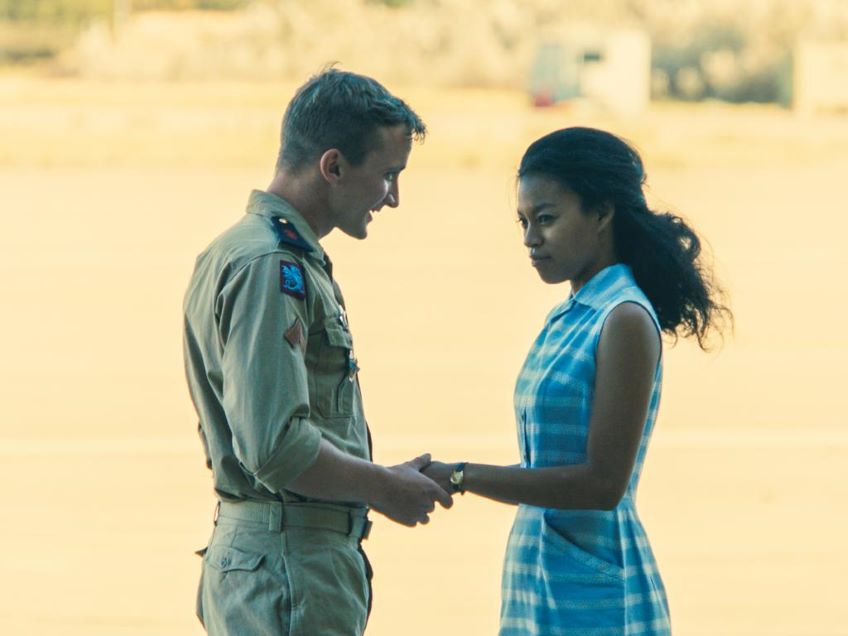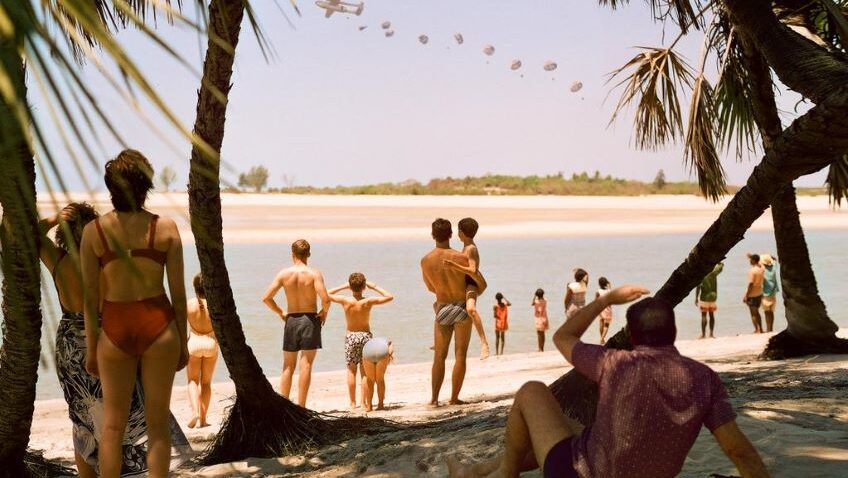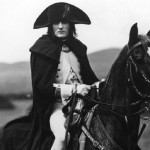Joyce Glasser reviews Red Island (March 1, 2024) Cert 12A, 117 mins in French with English subtitles
Robin Campillo might be best known for his powerful 2017 film, 120 BPM, but in 2005 he co-wrote the screenplay for Laurent Cantet’s Heading South: a chilling drama about sexual tourism in the former French colony of Haiti in the reign of the deranged dictator, Jean-Claude “Baby Doc” Duvalier. The film is told from the perspective of middle-class French women who share their beach resort holidays with attractive black teenagers for hire, initially oblivious to the reality of the smouldering political climate.
Campillo’s new film is set in the former French colony of Madagascar in 1970, a decade after it gained independence and the year before Baby Doc came to power in Haiti. This beautiful, compelling story of trouble in Paradise is told through the eyes of the eight-year-old future director though he maintains it is fiction. He describes his protagonist as ‘a nascent consciousness that discovers things without completely understanding them’ and succeeds in capturing this inchoate perspective.

Much of the story takes place on or just outside of Military Base 181 where observant Thomas (Charlie Vauselle) lives with his Spanish-born father, Warrant Officer Robert (Quim Gutiérrez), his sensitive, fun-loving, but responsible French mother, Collette (Nadia Tereszkiewicz) and his older brother. A veritable Alpha-Male, Robert has dropped the “o” from his name to detract from his Spanish origins, and there is some tension from his gaining French identity through marriage.
Madagascar is a plum posting for the couples on the base and their children. France wants to retain its strategic base in the territory, and the Malagasy, who probably welcome the money, tolerate them. But without conflict or civic responsibilities, the enlisted French have plenty of time for parties, picnics and cinema on the beach where, joined by some Malagasy, they watch, rather pointedly, Abel Gance’s Napoleon.
Not everyone is happy with the laid back lifestyle and sandy beaches. Newlyweds Odile (Luna Carpiaux) and Bernard (Hugues Delamarlière) have different reactions to the exotic environment. Fair-skinned Odile tells the other wives she would never have children abroad, and she is homesick for her French hometown. She complains that Bernard has changed since he’s been on the island. And he has, but the reasons are complex for he has become an alcoholic. He is also going native, unwilling to believe that the Malagasy, who are asserting their independence, might not welcome him – or long for a passport to France.
Thomas should be in bed but he watches a party at his house one night where the men, after dancing with their wives, have drunk enough to ask other wives to dance. After watching jealously as Collette slow dances with another man, Robert grabs Odile and begins to dance suggestively. This dancing is intercut with the expression on Collette’s face. Thomas, who notices the effects of alcohol on his mother, tells her ‘you’re strange.’ She replies, ‘that’s why we put you to bed. So you don’t see us like this.’
While he spends a lot of time observing the adult animals on the island, Thomas is not lonely. He has an imaginary friend in young comic strip heroine Fantômette and enjoys a sense of agency from participating vicariously in the adventures of this French girl super-hero, serialised from 1961. He has a real best friend, too, Suzanne (Cathy Pham), a Vietnamese girl who shares his enthusiasm for Fantômette and shares with him the strange goings-on at Lovers’ Wood, where they know they should not be.

Together they take an interest in Bernard as Suzanne tells Thomas that he works in the officers’ mess under her father’s orders. We watch, through Thomas’s eyes the marital breakdown as Odile disappears and Bernard embarrasses himself, showing up at a Base event with Miangaly (Amely Rakotoarimalala), an attractive prostitute. In a harrowing, impressively directed set-piece, Bernard has a breakdown in the bar out of hours watched by Miangaly, a kind bartender and Thomas dressed in the Fantômette costume his mother has made for him, but powerless and, later, helpless when Miangaly shoos him away.
Although Campillo filmed in the very base where his family lived, he is insistent the film is not autobiographical. Nonetheless there are scenes that are so distinctive that they must be real memories, and this authenticity infuses the story with nuanced characters, atmosphere and profundity. Robert horrifies Collette by bringing home baby crocodiles for his children, crocodiles that later nearly cost him his job.
But the macho soldier has an artistic, softer side that surprises us, using his knowledge of the military transport system to import a decorative aragonite table for their home. And when Thomas buys two small gems from a mobile jeweller for his mother’s birthday, Robert designs the beautiful ring in which they sit.
Just as Campillo captures the languor of life on the base, he conveys the underlying unease of these Europeans living on borrowed time in a country that is already dropping French classes from its primary schools. The atmosphere is so pervasive that the viewer is as uncomfortable as Thomas, realising that the French are overstaying their welcome and purpose.
Thomas’s family was previously stationed in Algeria, but Madagascar is more hospitable. The family is part of a group who have been relocating from one colonial refuge to another, living in an artificial society with special dispensation for their displacement. Thomas senses his parents anxiety about what returning to France will mean for their marriage, and their family.
In production notes, Campillo tells us that when he returned to France he was nostalgic for the life left behind, but he did not understand Colonialism. He succeeds in the difficult task of revealing what was really behind the nostalgia, ‘because this lost paradise was above all a stolen paradise.’




